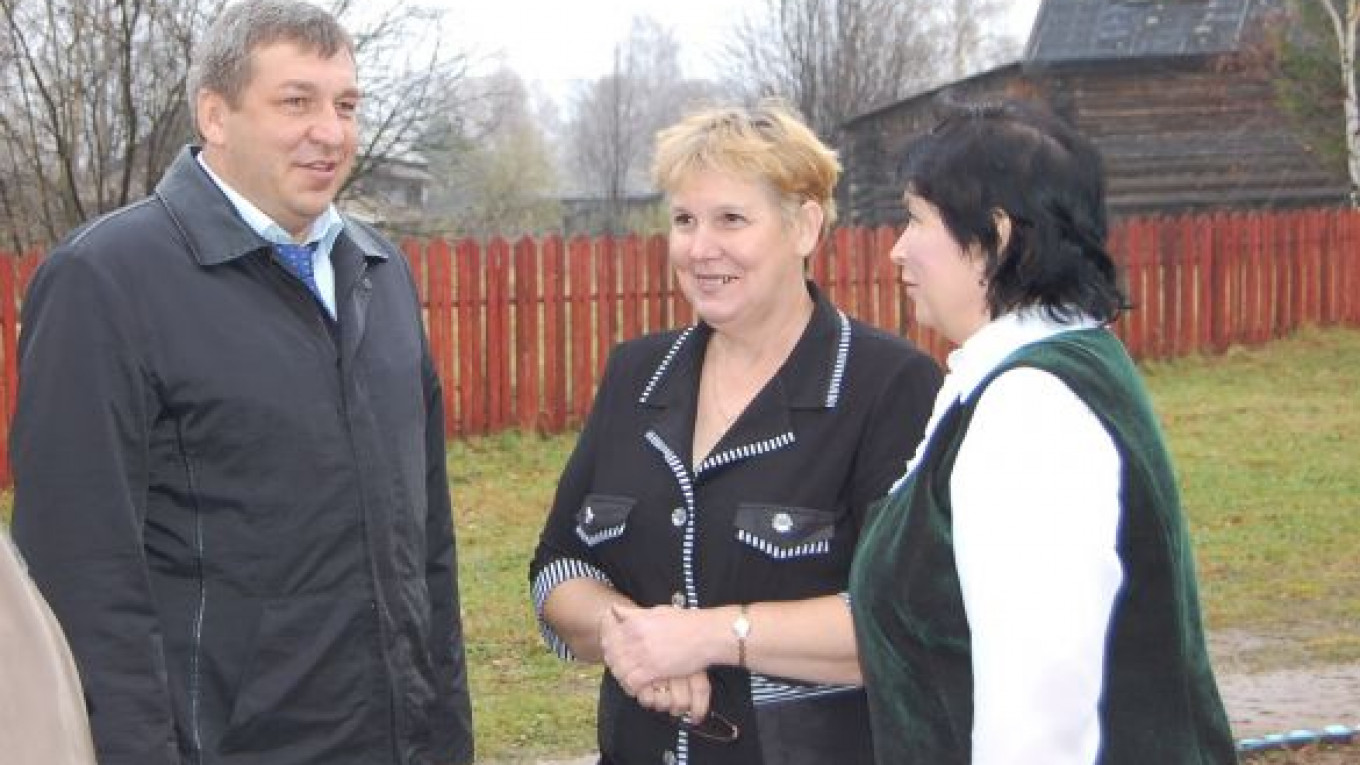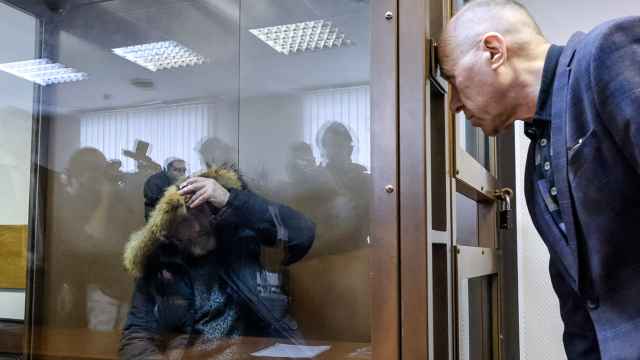Regional Development Minister Igor Slyunyayev unveiled plans Tuesday to reform his ministry, which might become a locomotive for long-promised government plans to decentralize federal power.
In his first informal meeting with reporters since being appointed in October, Slyunyayev, a former governor of the Kostroma region and a former deputy transportation minister, said he would define responsibilities in his ministry's agencies, which oversee such critical areas as utilities and construction.
"Within the current framework, the ministry is responsible for everything, while it doesn't have any legal authority," Slyunyayev said Tuesday.
He said a key step would concern Gostroi, a powerful state agency responsible for construction, whose head, Vladimir Kogan, had been in conflict with Slyunyaev after the latter's attempts to control the organization, Kommersant reported last week.
Slyunyayev said a new head of the agency will be appointed soon. Kogan resigned in December.
The attempt to reform the ministry is seen as an effort by Slyunyayev, a police academy graduate, to gain more control ahead of proposed plans to make the agency responsible for billions of rubles in government subsidies to the regions that are now allocated through other federal ministries.
The next step in Slyunyayev's plan, if the government approves, is to make his ministry the sole authority over the funds. This is now under discussion, a ministry spokeswoman said.
Slyunyayev didn't comment on the funding issue Tuesday.
Federal subsidies to the regions for various programs, including health care and education, are currently administrated by several ministries that deal directly with the regions.
But the government is planning to give all the relevant funding to the Regional Development Ministry, which would aggregate the funds and pass them on to the regions. The regions then would control the funds locally.
The amount of government subsidies to the regions was 258 billion rubles ($8.5 billion) in 2013, Kommersant reported, citing federal budget figures.
The idea corresponds to earlier government plans to decentralize federal power, giving regions more flexibility over their budgets. Last year, amendments were passed that compel branches of state companies based in the regions to pay taxes locally.
The plan was welcomed by former Pskov region Governor Yevgeny Mikhailov, who attended the meeting with Slyunyayev as an independent expert.
"Decentralization is needed because what we are seeing now is the reverse," he said.
Last week, the Regional Development Ministry said that more than 1 trillion rubles should be spent over the next eight years to bring the standard of living in poor and undeveloped regions closer to developed ones.
The ministry said in proposals submitted to the government that 10 regional-level entities — including the Moscow, Leningrad, Sverdlovsk, Krasnoyarsk and Krasnodar regions, Bashkortostan and the Yamal-Nenets and Khanty-Mansiisk districts — generate more than 52 percent of all regional gross domestic product.
Northern Caucasus republics and poor regions like Magadan and Kamchatka bring only 1 percent of regional GDP. Slyunyayev confirmed the existence of a plan but declined to provide further details.
Analysts said earlier that Slyunyayev, who has support from both President Vladimir Putin and Prime Minister Dmitry Medvedev, will be able to implement changes more successfully than his predecessor, Viktor Basargin, who was known for keeping a low-profile.
Former Basargin deputy Roman Panov is under investigation in the embezzlement of $3 million allocated for construction work for the APEC summit in Vladivostok last year.
Slyunyayev said Tuesday that Panov will remain in his post until the court ruling.
"I didn't remove his biography from the website," he said. "This is a matter of principle for me."
Contact the author at [email protected]
Related articles:
A Message from The Moscow Times:
Dear readers,
We are facing unprecedented challenges. Russia's Prosecutor General's Office has designated The Moscow Times as an "undesirable" organization, criminalizing our work and putting our staff at risk of prosecution. This follows our earlier unjust labeling as a "foreign agent."
These actions are direct attempts to silence independent journalism in Russia. The authorities claim our work "discredits the decisions of the Russian leadership." We see things differently: we strive to provide accurate, unbiased reporting on Russia.
We, the journalists of The Moscow Times, refuse to be silenced. But to continue our work, we need your help.
Your support, no matter how small, makes a world of difference. If you can, please support us monthly starting from just $2. It's quick to set up, and every contribution makes a significant impact.
By supporting The Moscow Times, you're defending open, independent journalism in the face of repression. Thank you for standing with us.
Remind me later.






